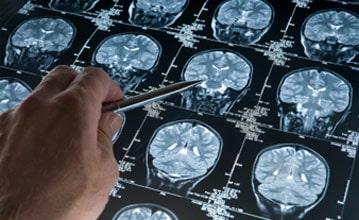Treatment for Movement Disorders in Leesburg
There are a variety of neurological conditions that frequently result in involuntary or abnormal movements of the body. These conditions are often grouped together into an overarching category known as movement disorders.
Dr. Seth Tuwiner provides comprehensive testing and treatment for movement disorders at his offices in Leesburg, VA. Learn more about your treatment options and call the Virginia Center for Neuroscience today at (703) 293-5244.
Types of Movement Disorders
Although this grouping can include dozens of specific neurologic difficulties, there are seven unique conditions that are among the most commonly diagnosed treated by Dr. Tuwiner.
Ataxia
Ataxia is a disorder that affects the cerebellum, which is the portion of the brain that controls coordinated movements. Symptoms of ataxia can include problems with balance and stability, clumsy motions of the limbs, and may even affect the person’s speech.
Parkinson’s Disease
Parkinson’s disease is degenerative in nature, meaning that its symptoms will progressively worsen over time as nerve cells within the brain begin to deteriorate. Impairment of these nerve cells causes the individual to lose control over their movements at all times, which is why the most noteworthy symptom of Parkinson’s is constant shaking of the body.
Essential Tremor
An essential tremor is a specific type of tremor that worsens as the person attempts basic movements. This condition is especially common in those with a family history of essential tremors, though it fortunately does not often lead to serious symptoms that interfere with everyday routines or lifestyles.
Tourette Syndrome
This hereditary neurological disorder is characterized by frequent involuntary motions of the body, which can also include verbal tics. Vocalizations by individuals with Tourette’s may include grunting, shouting, or throat clearing, and in some cases can be expressed as obscene words or gestures (coprolalia or copropraxia).
Dystonia
Caused by dysfunctions of the basal ganglia, dystonia is a neurological disorder that results in uncontrolled spasms across any area of the body.
Huntington’s Disease
Like Parkinson’s disease, Huntington’s disease is another type of degenerative neurological condition that worsens over time. Patients are typically diagnosed between age 35 and 50, and will continue to experience symptoms of Huntington’s for up to 30 years until their death.
Spasticity
Spasticity is usually related to damage or injury of the brain or spinal cord, which leads to an increase in muscle contractions. Conditions that are often associated with spasticity can include multiple sclerosis, stroke, Lou Gehrig’s disease, and stroke.
Neurologic Specialists in Northern Virginia
Due to the unique nature of each of these conditions, treatment will vary from one patient to another. Even two individuals with the same movement disorder may be recommended for different treatment options based on their particular symptoms, lifestyle, and other contributing factors.
Schedule a Consultation
If you suspect that you may have a movement disorder, or would like to learn more about other treatment methods for a known neurologic condition, please contact Dr. Tuwiner today to set up a personalized consultation at our office in Lansdowne, VA. For appointments, call our office today at (703) 293-5244.




